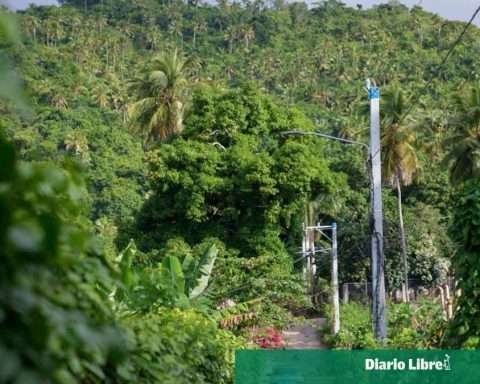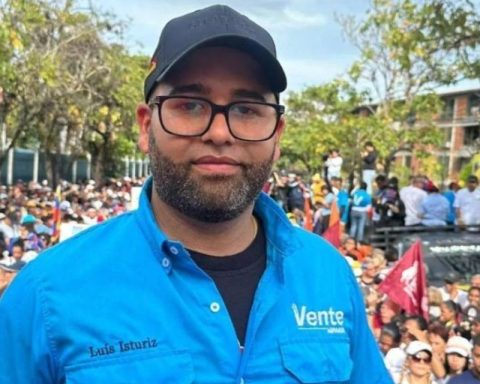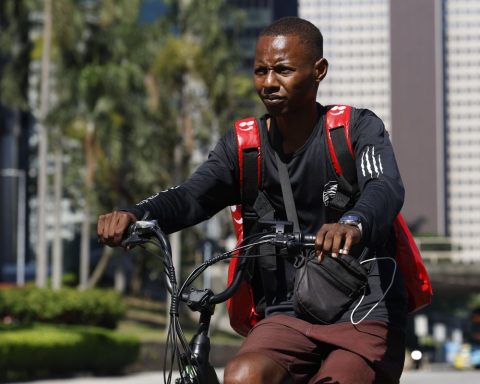Now that the electoral debacle of the plebiscite has passed, the greatest fear in the ruling party is that, in order to obtain the votes that give the green light to the structural reforms and that make up the heart of President Boric’s government program, they will end up being blurred to the point of becoming reforms. “as far as possible”. In this sense –acknowledge official sources–, the President would not only be questioned in front of his electoral mass that responded loyally in 38% of the Approval, but the governability would begin to falter with the uprooting of some of the Approve Dignity parties, Just as Senator Daniel Núñez (PC) outlined a few days ago, after arguing that if the Executive was unaware of the program, they would leave the Government.
With this fear on their backs, one of the missions –they confess close to the Palace– of the brand new Segpres minister, Ana Lya Uriarte, is not only to accompany the second stage of the constituent process in Congress without compromising the Government, but also to clearly separate the waters between the emblematic reform projects (such as the tax and pension reforms) of the constitutional discussion, even when – they warn – the temptation of certain sectors of the right to link them is not minor, knowing that they have “the upper hand” when negotiating. Moreover, the same day that Uriarte made his debut in Congress, Senator Francisco Chahuán (RN) announced that if the government wanted to continue with its reforms, they were going to have to sit down to negotiate. And although the right publicly recognizes that the constitutional discussion and the structural reforms are flour from different sacks, Senator RN’s comment was interpreted as a conditioning factor, since the declarations were issued on the eve of the meeting that hours later he would hold the Government with all the parties with parliamentary representation, to begin to define the itinerary of the second constitutional period.
Continuing with the fears, sources estimate that the discussions around the pension system may experience a setback even with respect to what was estimated by former President Piñera, who considered that of the additional 6%, at least 3 points should go to distribution, to a solidarity fund. President Boric’s project, socialized by the Minister of Finance, Mario Marcel, maintains that the additional 6% – which is what will be charged to the employer – should go entirely to solidarity. This proposal, however, is frowned upon by various sectors of the opposition, especially the UDI, from where they are in favor of the totality continuing to be allocated to individual capitalization and that solidarity be channeled more through the PGU, which must go increasing over time with general taxes, according to Deputy Frank Sauerbaum (UDI). “Or that only a part of 6% goes to solidarity and another to capitalization, as proposed by the approved project of (Sebastián) Piñera,” he maintains.
“Low salaries, gaps and the low contribution of 10% are among the main causes of low pensions. First, regarding the 6% extra contribution to the employer, the Government must be honest in its position, since if they want to take it to a common fund, then it will be an additional tax cost to the employer. Therefore, we should discuss it together with the tax reform, in such a way that a small or large company knows how much it is going to end up paying taxes in the end and they know what they are going to face. The worst thing is to produce uncertainty for those who are going to undertake or invest, “says the trade union parliamentarian. “I am also in favor of each worker choosing who manages those funds, whether a state or private entity, “he adds.
One of the great costs of having lost the plebiscite, they admit from the progressive world, is that it took the conversation back several years, something extremely complex, because although it was accepted that they would have to make concessions, given that the Government does not have the votes in neither of the two chambers, with the electoral beating on Sunday, the concessions could become sacrifices.
It is a fact of the case that the correlation of forces would not change if the Approval won, but obviously the citizen pressure that would fall on the RN and the UDI would have been much higher, as would have been the political cost of appearing to reject them. Now, with the card game against them, they confess without anesthesia that “we are left a bit in a vacuum, still not knowing what to do or where to go. We are completely knocked out”, comments the adviser of a senator.
Marco Velarde, president of Comunes (Broad Front), warns that with this scenario the discussion becomes more complex, but he is not in favor of freezing the reforms just because the track now seems heavier. “Citizens voted for a government program and, beyond the result of the plebiscite, that program must be respected.” But there is an irrefutable fact: there is total uncertainty regarding what Chile’s counterproposal will be. Let’s go to negotiate.
In the opposition they believe that this has been possible only because the Boric government froze its legislative agenda in the hope of obtaining a victory in the constitutional plebiscite. “The same thing is going to happen in these six months, while the Convention was taking place, Congress was somewhat paralyzed in some things or was slower. The minister himself (Giorgio) Jackson came here to tell us to put up with the discussion until after the plebiscite”, says deputy Jorge Alessandri (UDI).
But the warning from unionism is clear, and Alessandri does not try to moderate his peremptory tone: “If (the Government) continues with its same reforms, it risks losing important things. Or talk and get the votes to moderate some, modify others, that is a definition that must be given. I imagine that they want to pass a tax reform and are willing to change it in order to pass it. Another position of the Government would be to advance without compromising, even if it rebounds in Parliament. I think that neither the Government nor the minister (Ana Lya) Uriarte is in that logic.
The tax reform is the other star project of the Executive, and the RN helmsman, Senator Francisco Chahuán, hinted – in an interview with CNNChile– that in its sector there is an opening to cover the gaps that make avoidance and evasion possible, but there is not much will to apply tax exactions in such a complex economic scenario. But again, nothing is clear yet in RN either. “About how these reforms are going to be discussed, there has been no cross talk, it is something that each bench has to discuss,” points out Senator Manuel José Ossandón, who refers to the other problem: the delay of La Moneda in starting the processing of the reforms has prevented the preparation of alternative proposals.
Senator Jaime Quintana (PPD) maintains that “the President wisely understood that it is up to him to govern and the reforms must be implemented with the Government, in a correct conversation with Parliament, and that is why today only the Minister of la Segpres (Ana Lya Uriarte)”, and this – in his opinion – accounts for a greater proactivity.
Senator Juan Ignacio Latorre, of the Democratic Revolution, believes that there is no need to be so pessimistic, since there are opposition congressmen who are not closed to reforms. “The right is not homogeneous, and there will be sectors that agree that Chile needs a tax reform or a reform of the pension system,” he declares, and then adds: “The tax reform that has already been presented and is being processed in the Camera, in addition to the new royalties mining, the 40-hour project and the pension reform, among other projects, all of this will have to be discussed in the commissions, democratically in Congress, where there may be indications, proposals and gradualism”.
a single package
“I do not see that the reforms can be postponed, they are part of another conversation. Some have wanted to link the reforms here with the constituent itinerary, but I think they are completely different discussions,” insists the PPD Jaime Quintana. The RN Manuel José Ossandón seconded the position of his colleague: “One thing is the constitutional debate and the other is the urgent reforms that we have to legislate.”
But the possibility looms latent. “If the right uses that as an excuse (to bog down the conversation), it means that what they promised in the campaign, when they said they wanted a good and new Constitution, was a lie,” says Senator Latorre (RD).
In the ruling party they warn that the right is intoxicated with triumph and that there is a certain temptation to ideologically interpret the result of the plebiscite as the vindication of the “model”, which would constitute a terrible mistake, according to Latorre: “The result of the plebiscite is not a triumph right. I think that the right would do the math very poorly if it believes that the millions of people who voted Rejection are their votes. I think that would be a very bad calculation. It’s okay for them to be emboldened or empowered, but I think they’re completely different conversations. What we are doing now is seeking a new political agreement for constitutional reform to enable a new constituent process, and give ourselves a second chance”.
Meanwhile, and appealing to the good faith of Chile Vamos, Quintana believes that the future of this constituent process will advance in parallel and “without major obstacles”, since “in the meeting I saw a lot of coincidence and, except for the Republicans, there is enough unity of purpose”. Deputy Jorge Alessandri (UDI) comments that “it is important that a quick process be carried out, because otherwise economic, legislative and political uncertainty is caused. There are always issues such as the pension system, health system or political of housing, which are going to be in the constitutional text, so if we wait another year now, we are not going to make any progress”.
And the Republicans? The bench has 15 members in the lower house. The continuity of the constituent process through a new Convention is not something that pleases the party, although the conversation about reforms is something different. “We are in favor of dialogues taking place in Congress and not in La Moneda, and I believe that this is progress. Indeed, there have to be different types of dialogue here, because there are different knots in the country, not just the constitutional knot. The Government cannot continue campaigning, as it did until September 4, therefore, it is evident that there are differences regarding the framework in which it is being discussed”, affirms Senator Rojo Edwards.
Nobody in Congress doubts that the Republicans are “pulling” the parliamentarians of Chile Vamos, who see a discussion of the reforms as more necessary and urgent than the constitutional issue. “The Executive has suffered a resounding setback in the plebiscite and this should serve as a lesson in humility and an opportunity to resume a path of dialogue, conciliation and civic friendship. Our sector is ready to build, to reach agreements on sensitive matters for all, but on the basis of generating better conditions for all Chileans and not under the assumption of a constitutional text that today becomes simply non-existent. It is to be assumed that the Government remembers to govern and to give legislative priority to the issues that really matter”, maintains Senator José Miguel Durana (UDI).
“What we believe is going to happen is that a new election will be called, to be held by the end of the year, with a number of conventional between 60 and 100, and that the text will end up being a hybrid between the Constitution that is just to reject and the Constitution that currently governs us”, points out with sadness the source of Approveo Dignidad who requested confidentiality of his identity.


















